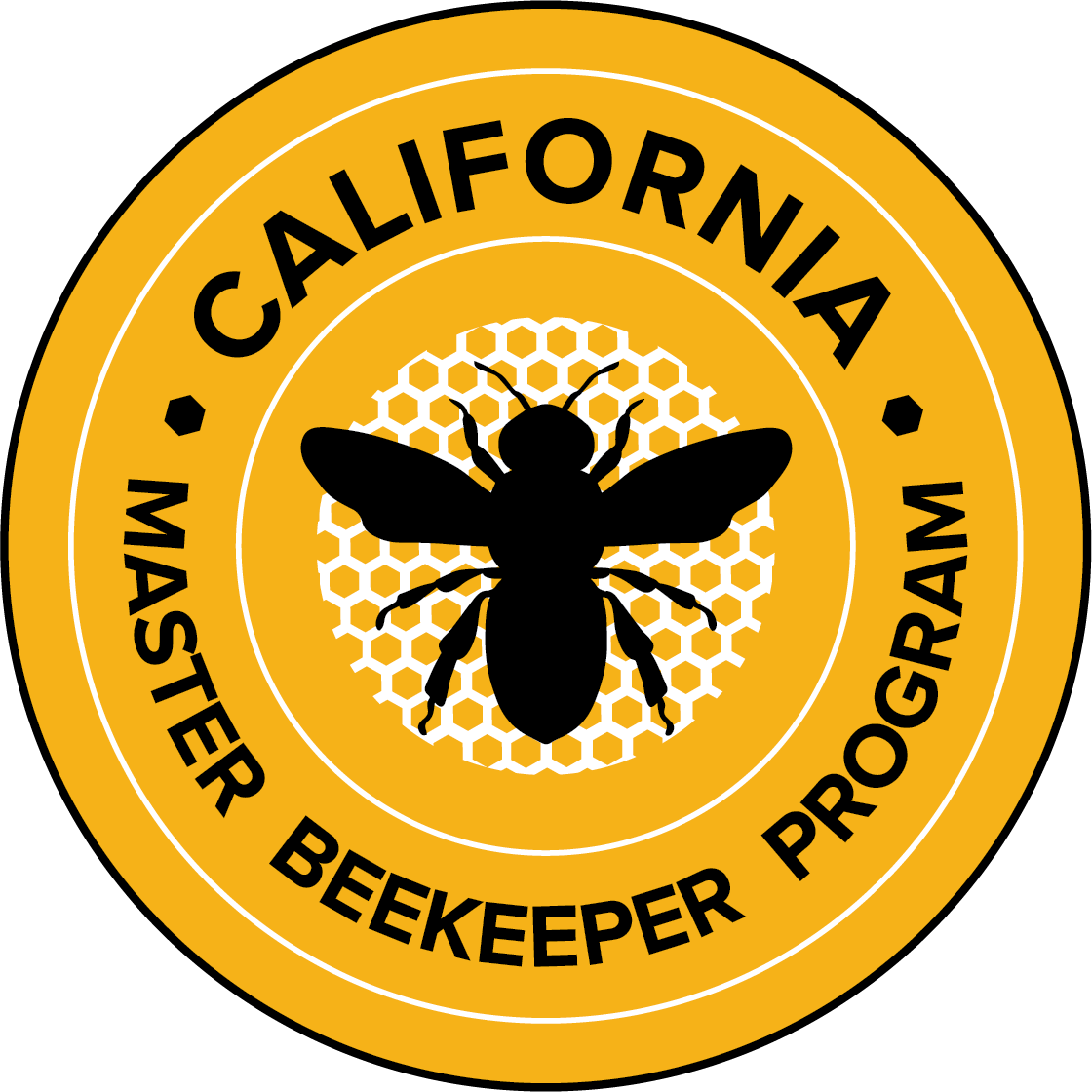The Master level is a project-based capstone project. Demonstrate the peak of expertise by generating knowledge or building a system.
Steps
1. Apply: Apply here when you feel ready. You don't need a fully-formed project proposal, but should be grounded in a track. If you are unsure about your track or if Master is right for you, attend office hours to discuss with CAMBP staff before applying.
2. Formalization: Meet with CAMBP staff to develop and finalize your project proposal. Submit a proposal based on the following tracks that outline your topic, timeline, budget, project aim, objectives, and proposed methods and outcomes using one of our templates.
- Native Bees and Pollinator Gardens
- Commercial Beekeeping
- Scientific Research
- Education and Outreach
- CAMBP Partner Organization Development
- Hives For Heroes Mentor
3. Implementation: CAMBP staff will advise you and connect you to resources as needed.
4. Presentation: Can be in-person (eg. at the E.L. Niño Bee Lab in Davis or a research symposium) or remote. The presentation style depends on the project and (to some degree) the candidate's preferences.
Policies
- Timing: Dependent on project. All project must be completed within 2 years.
- Collaboration: Groups are allowed, pending approval.
- Score: Pass/Fail and depends on project success and the final presentation.
Resources
Review previous Capstone Project Presentations on CAMBP YouTube in the "Master Capstone Playlist"
- CAMBP-Approved Proposal Templates
- Scientific Research Track
- From Hypothesis to Proof, Planning a Research Project: 40 min presentation by Nissa Coit, grad student at the E.L. Niño Bee Lab. She reviews how to decide a research topic, ask solid research questions, write a research paper, and create an annotated bibliography. This is a great resource if you're considering a scientific research paper for your Master Capstone.
- Guidance on how to create an effective poster on your research
- Write like a professor series UC Davis: Great overview of how to write a professional paper. This video also covers plagiarism, scientific writing styles and rules and citations.
